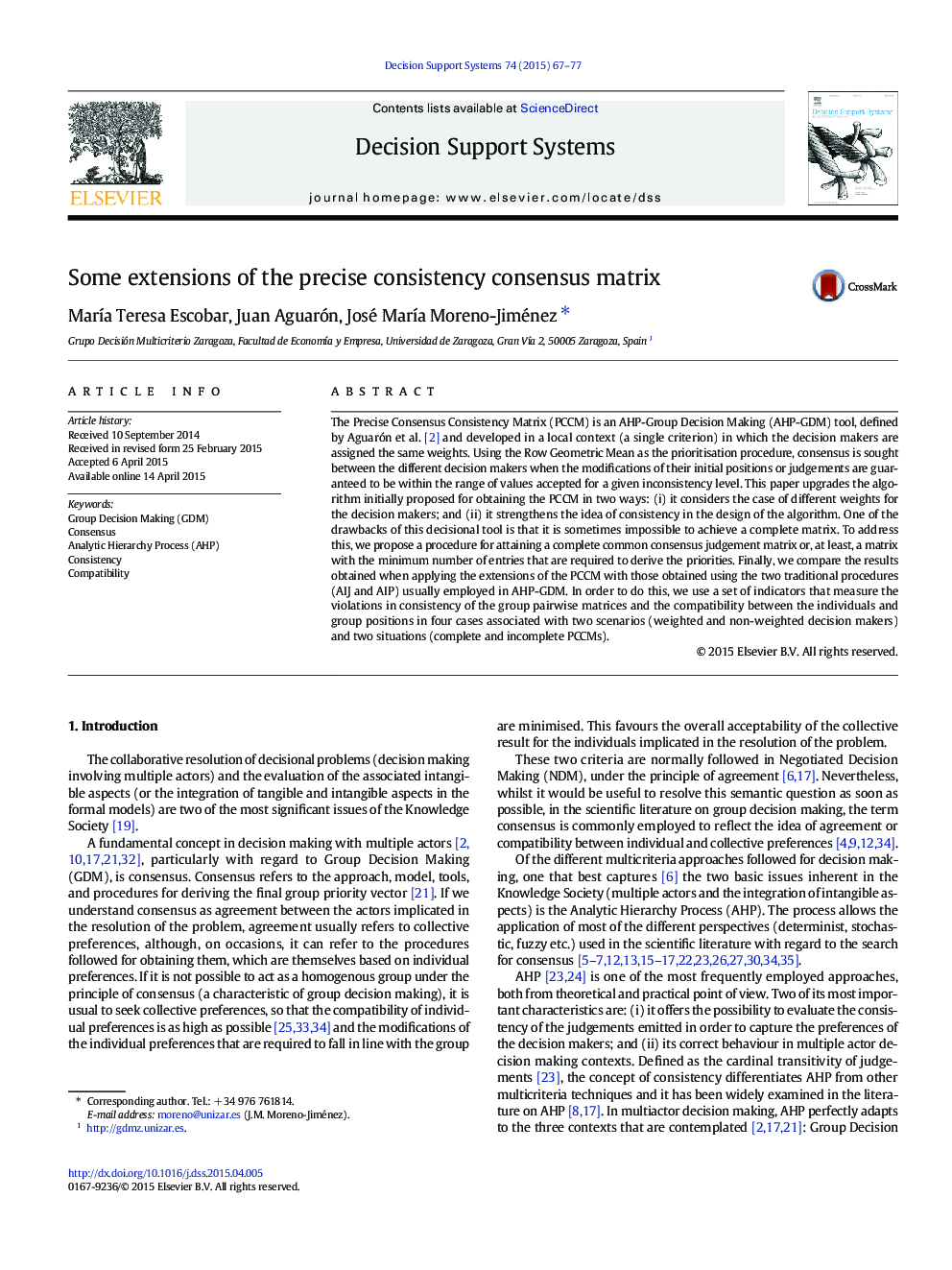| کد مقاله | کد نشریه | سال انتشار | مقاله انگلیسی | نسخه تمام متن |
|---|---|---|---|---|
| 554696 | 1451070 | 2015 | 11 صفحه PDF | دانلود رایگان |
• New method for consensus building in AHP-group decision making
• Minor changes from individual pairwise comparison matrices
• Changes are consistent with the individual positions.
• Several measures to compare group consensus building methods
• Consistency and compatibility of complete and incomplete group consensus matrices
The Precise Consensus Consistency Matrix (PCCM) is an AHP-Group Decision Making (AHP-GDM) tool, defined by Aguarón et al. [2] and developed in a local context (a single criterion) in which the decision makers are assigned the same weights. Using the Row Geometric Mean as the prioritisation procedure, consensus is sought between the different decision makers when the modifications of their initial positions or judgements are guaranteed to be within the range of values accepted for a given inconsistency level. This paper upgrades the algorithm initially proposed for obtaining the PCCM in two ways: (i) it considers the case of different weights for the decision makers; and (ii) it strengthens the idea of consistency in the design of the algorithm. One of the drawbacks of this decisional tool is that it is sometimes impossible to achieve a complete matrix. To address this, we propose a procedure for attaining a complete common consensus judgement matrix or, at least, a matrix with the minimum number of entries that are required to derive the priorities. Finally, we compare the results obtained when applying the extensions of the PCCM with those obtained using the two traditional procedures (AIJ and AIP) usually employed in AHP-GDM. In order to do this, we use a set of indicators that measure the violations in consistency of the group pairwise matrices and the compatibility between the individuals and group positions in four cases associated with two scenarios (weighted and non-weighted decision makers) and two situations (complete and incomplete PCCMs).
Journal: Decision Support Systems - Volume 74, June 2015, Pages 67–77
